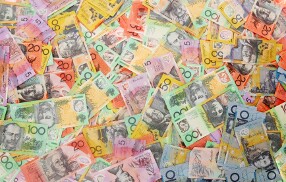The Australian dollar was trading sideways during Friday’s session as traders have paused sell-off of riskier currencies but remained cautious of the spreading coronavirus in China and its potential impact on the global economy. Australian domestic macroeconomic data was in line with expectations, and some of China’s reports were positive. While that provided a short-term boost to the Aussie, it did not last long.
The Australian Bureau of Statistics reported that the Producer Price Index rose by 0.3% in the December quarter from the previous three months. Year-on-year, the index rose by 1.4%. According to the report from the Reserve Bank of Australia, private borrowing rose by 0.2% in December, the same as in November.
As for China’s data, the manufacturing Purchasing Managers’ Index fell to 50.0 in January from 50.2 in December, matching forecasts. While the fall to the neutral level of 50.0 means that the industry is no longer growing, it is not contracting either. The non-manufacturing PMI climbed to 54.1 from 53.5 instead of falling to 53.1 as analysts had predicted.
The RBA will conduct a monetary policy meeting next week. The general consensus is that the central bank will cut its main interest rate by 25 basis points to 0.5%. The negative monetary policy outlook is a major detrimental factor to the Australian dollar.
AUD/USD fell from 0.6720 to 0.6705 as of 7:18 GMT today. EUR/AUD traded at 1.6411 after opening at 1.6407 and rising to the daily high of 1.6446. AUD/CHF edged up from 0.6514 to 0.6519.
If you have any questions, comments, or opinions regarding the Australian Dollar, feel free to post them using the commentary form below.
Aussie Flat After Economic Data from China & Australia
